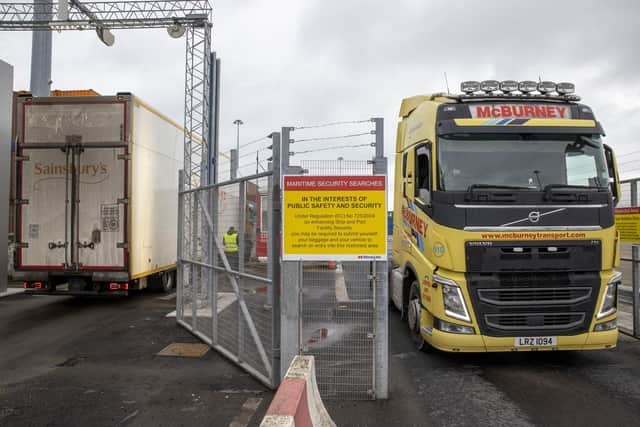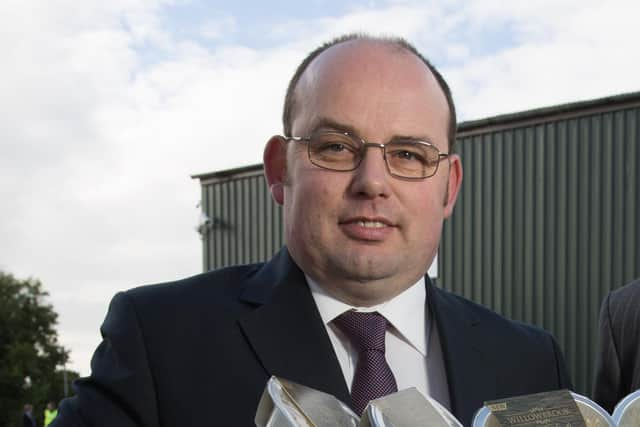House of Lords report into the Windsor Framework: Hauliers were some of the most forthright witnesses on the potential impact of the Irish Sea border
and live on Freeview channel 276
(Scroll down for link to other stories and editorial on the report)
There were written submissions by political parties, lobbyists, think-tanks, economists and ‘community organisations’, as well as the Northern Ireland Human Rights Commission (NIHRC) and the Equality Commission.
Advertisement
Hide AdAdvertisement
Hide AdSome of the most forthright contributions came from representatives of the logistics and haulage industry, who will, in many cases, have to wrestle directly with the Windsor Framework’s provisions. The Sales Director of AM Logistics, Sarah Hards, highlighted potential problems with ‘groupage’ freight, which involves small consignments of goods being combined into one container. This form of shipping, she said, was forgotten about in the original protocol “and really has not been remembered for this one (the Windsor Framework).”


The managing director of McCulla Ireland, Peter Summerton, told the committee that it was wrong to compare the framework to a fully implemented protocol. He said, “A lot of the comparisons are made to the Protocol had it been implemented in full—it never could have been, because it would have crashed the supply chain.”
He pointed out that the green lane will be “more cumbersome” than “the Protocol as it was implemented… The brief that the Prime Minister gave was that he has removed any sense of a border in the Irish Sea. That quite simply is not the case.”
Mark Tait, the director at Target Transport, described the green lane as in reality, “a highly regulated express retail lane” that would benefit large supermarkets, but not hauliers. He said that companies, “bringing multiple pallets on multiple products from multiple customers … are now concerned that we could end up red lane-ing every item of freight that we move.”
Advertisement
Hide AdAdvertisement
Hide AdIf even a small number of goods in a consignment is destined for the Republic, Mr Tait expects it to face full customs formalities. The committee has invited the government, “to respond to these concerns over the limited scope of the green lane”.


Windsor Framework ‘will make sea border worse’ says Lords report